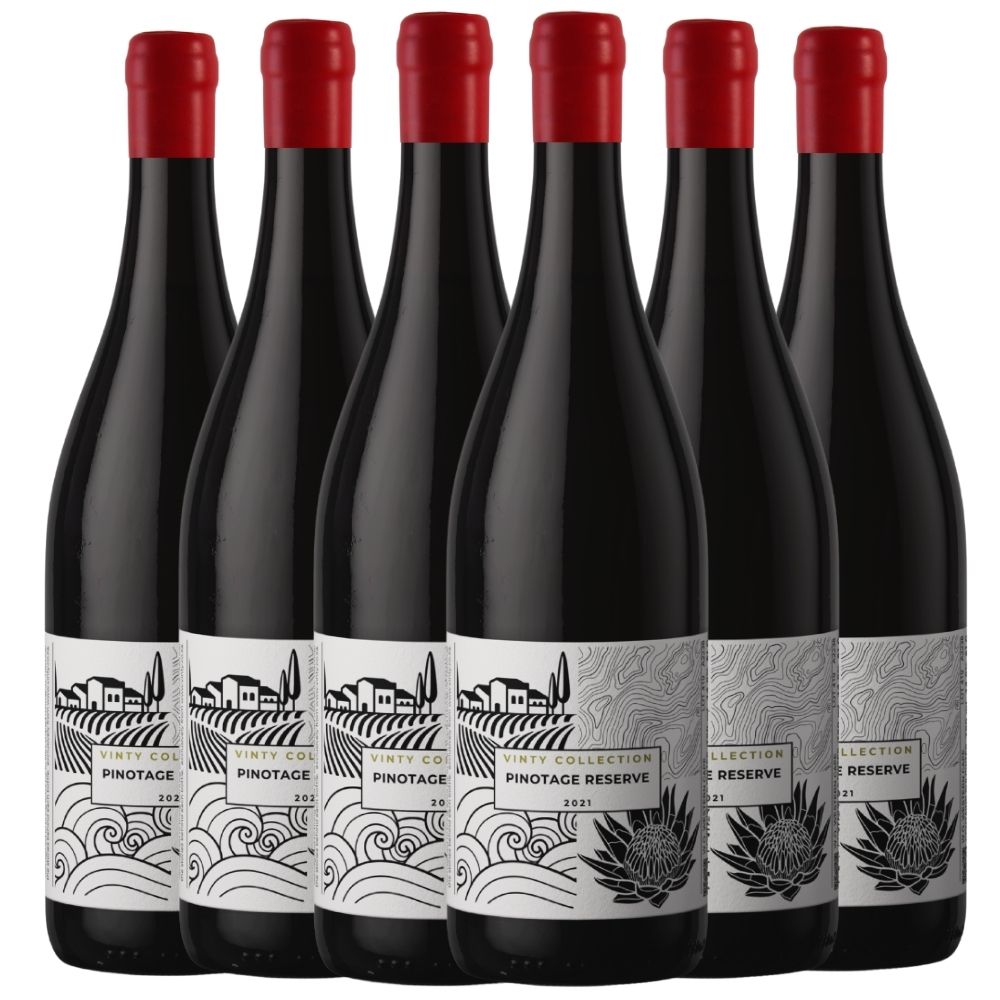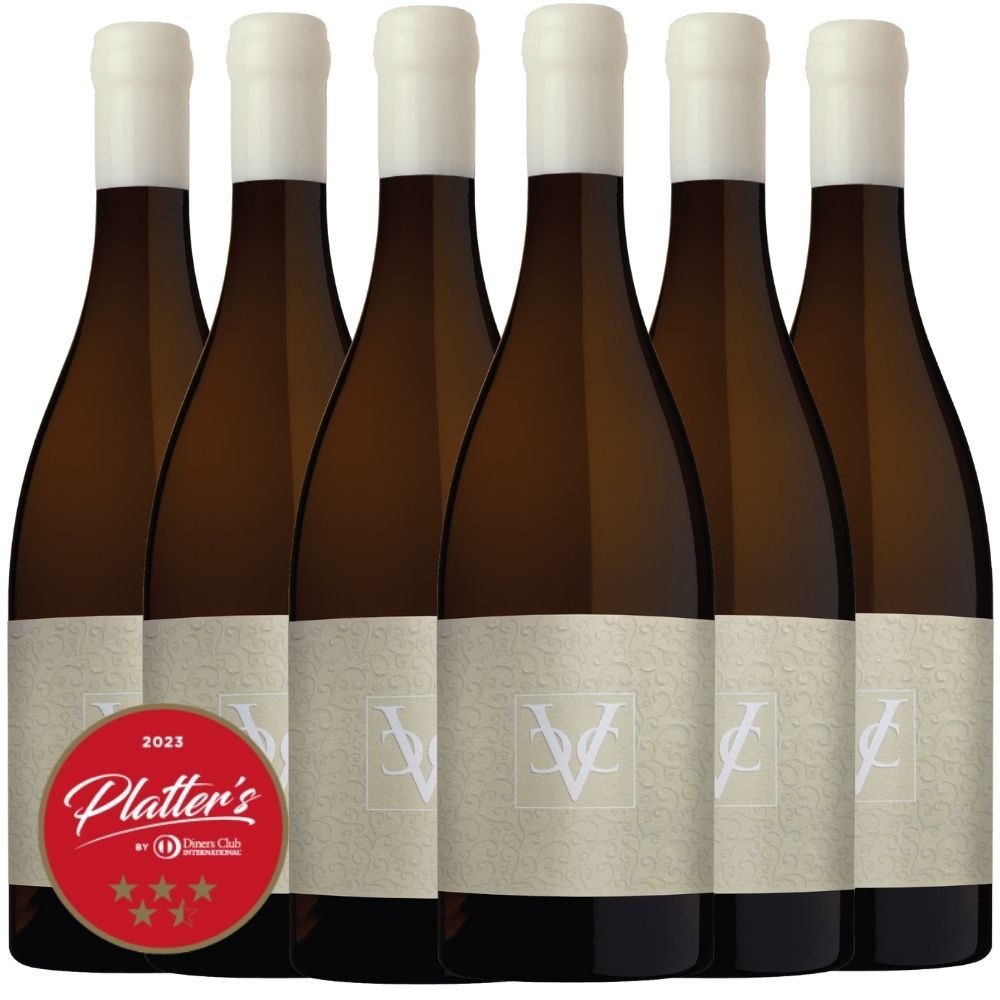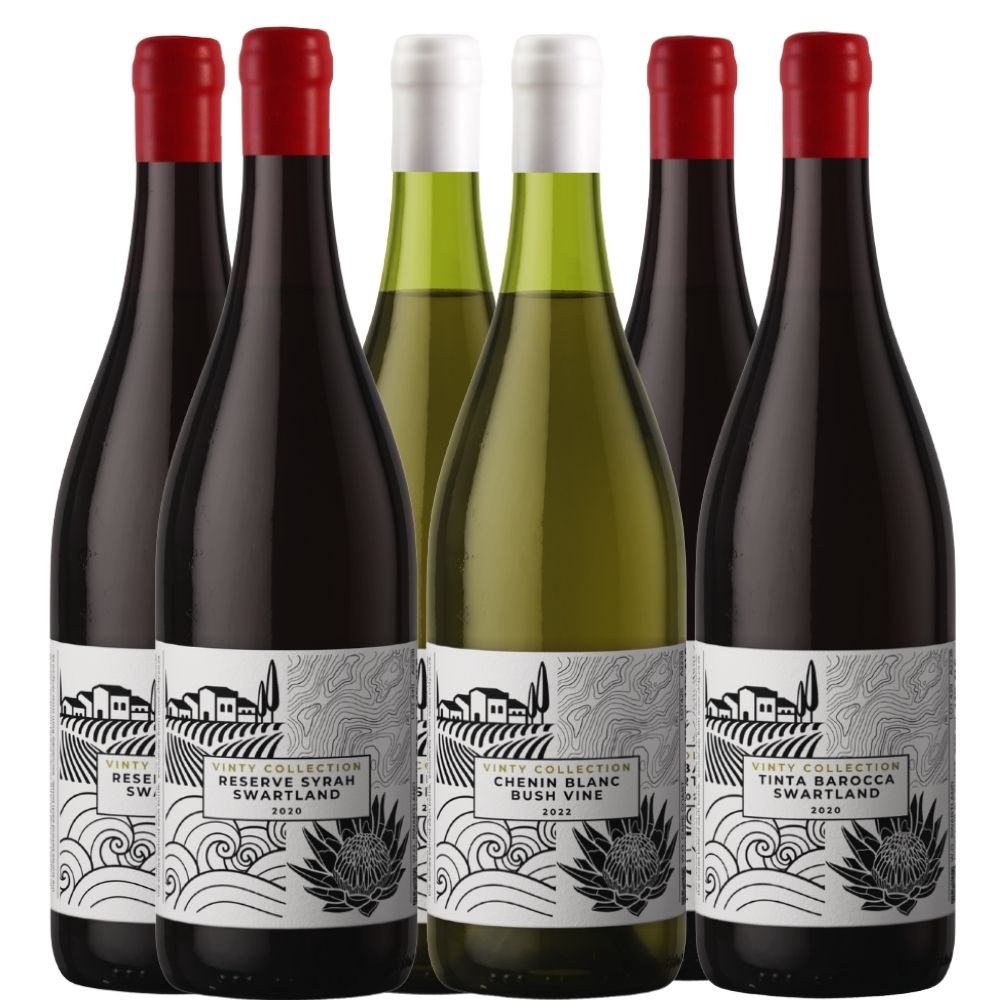MCC wine has become a symbol of celebration in South Africa, gaining steady global attention for its vibrant bubbles and refined taste. People are often surprised to learn that the Méthode Cap Classique method was only developed as recently as 1992 and yet, these wines now account for
over 10 million bottles produced each year in the country. While the flavours are as elegant as French Champagne, the real shock is that every bottle carries a distinctly local fingerprint, setting MCC apart as a true South African original.
Table of Contents
Quick Summary
| Takeaway |
Explanation |
| MCC signifies high-quality South African sparkling wine. |
MCC, or Méthode Cap Classique, showcases South Africa’s unique winemaking tradition and quality standards for sparkling wines. |
| Traditional bottle fermentation defines MCC’s uniqueness. |
MCC employs a labour-intensive secondary fermentation process in the bottle, essential for developing its characteristic bubbles and complexity. |
| MCC contributes significantly to South Africa’s economy. |
The MCC sector creates jobs, attracts tourists, and generates export revenues, supporting local agricultural and hospitality industries. |
| Flavour complexity distinguishes MCC from other sparkling wines. |
MCC offers unique flavour profiles, such as citrus, toasted brioche, and minerals, enhanced through careful ageing. |
| Understanding MCC enhances wine appreciation. |
Knowledge of MCC’s origins, methods, and flavours equips enthusiasts to enjoy and identify quality South African sparkling wines better. |
The Essence of MCC Wine: Definition and Origin
MCC, or Méthode Cap Classique, represents South Africa’s proud sparkling wine tradition, a testament to the country’s innovative winemaking spirit.
Developed in 1992, this distinctive sparkling wine style emerged as a way to celebrate local craftsmanship while distinguishing itself from traditional French Champagne.
What Makes MCC Unique
At its core, MCC follows the
traditional bottle fermentation method used in Champagne production. This intricate process involves creating a base wine, followed by a second fermentation directly in the bottle, which generates the signature bubbles and complex flavours characteristic of premium sparkling wines.
Unlike simpler carbonated wines, MCC undergoes a meticulous transformation that can take anywhere from 12 to 36 months.
Key characteristics of authentic MCC include:
- Secondary fermentation occurring exclusively in the bottle
- Minimum ageing requirements to develop depth and complexity
- Strict adherence to South African wine production standards
- Crafted primarily from Chardonnay, Pinot Noir, and Pinot Meunier grapes
Cultural Significance and Winemaking Philosophy
MCC represents more than just a beverage – it embodies South Africa’s commitment to world-class wine production.
According to wine industry experts, the MCC designation signals a dedication to quality, traditional techniques, and innovative winemaking. By creating a unique local sparkling wine style, South African winemakers have carved out a distinctive niche in the global wine market.
For wine enthusiasts looking to explore more about local celebratory wines,
read our guide on South African celebration wines.
Why MCC Matters: The Cultural and Economic Impact
South Africa’s Méthode Cap Classique (MCC) has emerged as more than just a beverage; it represents a powerful narrative of national innovation, economic resilience, and global recognition in the wine industry.
A Symbol of National Pride
MCC transcends being a mere drink, functioning as a
cultural ambassador for South African winemaking. By developing a distinctive sparkling wine style, local vintners have positioned themselves on the global stage, challenging traditional European wine paradigms. This approach demonstrates South Africa’s capacity for creating world-class wines that compete internationally while maintaining a unique local character.
Key economic contributions of MCC include:
- Creating specialised jobs in wine production and related industries
- Attracting international wine tourism
- Generating export revenue for the agricultural sector
- Supporting local grape farmers and vineyard workers
Economic Ecosystem and Global Recognition
The MCC sector represents a sophisticated economic ecosystem that extends far beyond wine production. It supports an intricate network of agricultural workers, marketing professionals, sommeliers, and hospitality experts. By establishing strict quality standards and a protected designation, South African winemakers have transformed MCC into a premium product that commands respect in international markets.
For wine enthusiasts eager to explore more about South African wine culture, discover our curated selection of celebration wines that showcase the best of local sparkling traditions.
How MCC Wine Is Made: The Method Explained
MCC winemaking is a precise and time-honoured craft that transforms simple grape juice into extraordinary sparkling wine through an intricate process steeped in tradition and technical skill.
Base Wine Creation
The journey begins with selecting premium grape varieties, typically
Chardonnay, Pinot Noir, and Pinot Meunier. Winemakers carefully harvest grapes at optimal ripeness, creating a base wine through gentle pressing and initial fermentation. This foundational wine must possess balanced acidity, subtle flavours, and the potential to develop complexity during subsequent stages.
Key considerations in base wine production include:
- Selecting grapes with precise sugar and acid levels
- Minimising skin contact to maintain the wine’s delicacy
- Maintaining cool fermentation temperatures
- Preserving the grape’s inherent flavour characteristics
Secondary Fermentation And Ageing
According to South African wine experts, the transformative moment occurs during secondary fermentation. Winemakers add a precise mixture of sugar and yeast to the base wine, then bottle and seal it. This triggers a second fermentation inside the bottle, creating natural carbonation and developing the wine’s signature complexity.
The ageing process can range from 12 to 36 months, during which bottles are gradually turned and tilted – a technique called riddling – to collect sediment in the neck.
Below is a breakdown of the core steps involved in the production of Méthode Cap Classique (MCC) wine, highlighting the unique South African process that contributes to MCC’s quality and distinction.
| Stage |
Key Actions |
Distinctive Features |
| Grape Selection |
Harvesting Chardonnay, Pinot Noir, Pinot Meunier |
Focus on acidity, balance, and minimal skin contact |
| Base Wine Creation |
Gentle pressing, controlled fermentation |
Maintains delicacy and preserves flavour |
| Secondary Fermentation |
Addition of yeast and sugar, sealing in bottle |
Triggers in-bottle fermentation for bubbles |
| Ageing |
Bottle stored 12-36 months on lees |
Develops complexity, depth, and fine mousse |
| Riddling |
Gradual turning and tilting of bottles |
Moves sediment towards the neck for removal |
| Disgorgement |
Removal of sediment, dosage may be added |
Final clarification, adjusts sweetness level |
| This patient process develops rich, nuanced flavour profiles that distinguish premium MCC wines. |
|
|
For enthusiasts curious about exploring different sparkling wine styles,
explore our guide comparing sparkling wines and discover the unique characteristics of South African bubblies.
Exploring the Flavours: Key Characteristics of MCC
MCC wines represent a sensory journey through South Africa’s unique terroir, offering a complex and refined sparkling experience that distinguishes itself from other global bubblies.
Sensory Profile And Flavour Complexity
South African wine experts highlight that MCC wines typically showcase
extraordinary aromatic depth and precision. The extended bottle ageing process contributes to intricate flavour development, resulting in wines that express remarkable nuance and sophistication.
Typical flavour characteristics include:
- Bright citrus notes like lemon and green apple
- Subtle hints of toasted brioche and fresh pastry
- Delicate mineral undertones
- Gentle almond and nutty background flavours
Structural Elements and Tasting Experience
Beyond flavour, MCC wines are distinguished by their remarkable structural integrity. The fine, persistent bubbles create a creamy mouthfeel, while balanced acidity provides remarkable freshness. Depending on the specific production style, these wines can range from bone-dry to slightly sweeter expressions, offering versatility for different palates and occasions.
The ageing process plays a crucial role in developing complexity, with longer-aged MCCs revealing more profound, evolved characteristics. Young MCCs might present more fruit-forward profiles, while aged versions develop complex, bready notes that wine enthusiasts deeply appreciate.
The following table summarises the typical sensory and flavour characteristics found in South African MCC wines, helping wine lovers identify what to expect during tasting and comparison.
| Sensory Element |
Description |
Notes |
| Citrus Aromas |
Bright notes of lemon and green apple |
Hallmark of cool-climate South African regions |
| Brioche/Toastiness |
Subtle hints of toasted brioche and fresh pastry |
Developed through extended bottle ageing |
| Mineral Undertones |
Delicate mineral notes |
Expresses South African terroir |
| Nutty/Almond Flavour |
Gentle almond and nutty background |
More pronounced in mature MCCs |
| Bubble Character |
Fine, persistent mousse |
Result of in-bottle fermentation |
| Acidity |
Crisp, refreshing structure |
Balances richness and enhances food pairing |
| Sweetness |
Ranges from bone dry to off-dry |
Varies by style and ageing duration |
For those interested in discovering how to
identify quality wines, understanding these nuanced characteristics becomes an essential skill in appreciating South African sparkling wines.
MCC Wine and South Africa: A Journey Worth Tasting
MCC represents more than a sparkling wine style; it embodies the innovative spirit and winemaking passion that defines South African viticulture.
Historical Evolution and Cultural Significance
According to South African wine historians, the MCC journey began in 1971 with Simonsig’s groundbreaking first production. This moment marked a transformative point in South African wine culture, signalling the country’s ambition to create world-class sparkling wines that could stand alongside traditional European offerings.
Key milestones in MCC’s development include:
- Introduction of dedicated MCC production techniques
- Establishment of strict quality control standards
- Growing international recognition and awards
- Increasing domestic and export market interest
Terroir and Winemaking Innovations
South African MCC producers leverage the country’s
diverse and exceptional wine regions, each contributing unique characteristics to the final product. Regions like Stellenbosch, Franschhoek, and Makhanda (formerly Grahamstown) offer distinctive microclimates that allow winemakers to craft sparkling wines with remarkable complexity and character.
The innovative spirit of South African winemakers continues to push boundaries, experimenting with grape blends, ageing techniques, and production methods that distinguish MCC from other global sparkling wines.
For wine enthusiasts eager to explore beyond tasting rooms,
discover unique wine road trips that showcase the incredible diversity of South African wine regions and MCC production.
Experience the Sparkle of MCC With Vinty Wines
If discovering the magic of MCC sparkling wine left you feeling inspired but unsure where to find truly special bottles that capture South Africa’s character, you’re not alone. Many wine lovers struggle to break free from mass-produced, generic choices and crave small-batch, story-rich wines. At Vinty, we understand that choosing wine is about more than labels or price. It is about connecting with real craftsmanship, tradition, and flavour as described in your journey through MCC’s origins and artistry.
Ready to enjoy the sophistication of Méthode Cap Classique at home or celebrate a unique occasion? Explore our curated selection at
Vinty to discover small-batch, South African sparkling wines with a story to tell.
Frequently Asked Questions
What is MCC wine?
MCC, or Méthode Cap Classique, is a traditional South African sparkling wine produced using bottle fermentation. To enjoy its unique characteristics, try tasting different varieties, particularly those made from Chardonnay, Pinot Noir, and Pinot Meunier grapes.
How is MCC wine made?
MCC wine is made through a meticulous process that includes creating a base wine, followed by secondary fermentation in the bottle. To appreciate the craft, consider exploring the ageing process, which typically lasts between 12 to 36 months.
What are the key flavour characteristics of MCC wine?
MCC wines often feature bright citrus notes, hints of toasted brioche, and delicate mineral undertones. To identify these flavours, practise tasting various MCC offerings and pay attention to their aromatic depth and complexity.
Why is MCC significant in South Africa’s wine industry?
MCC represents South Africa’s commitment to high-quality wine production and has gained global recognition for its distinct style. To understand its cultural impact, explore its role in creating jobs and supporting local agriculture within the wine sector.
How can I improve my MCC wine tasting experience?
To enhance your MCC wine tasting, focus on identifying the structural elements like the fine bubbles and balanced acidity. Engage with a tasting guide that details the sensory profiles of different MCC wines to deepen your appreciation.
What are the aging requirements for MCC wine?
MCC wine must undergo a minimum ageing period to develop its depth and complexity, typically lasting from 12 to 36 months. To recognise the differences in ageing, try tasting both young and aged MCC wines for a comparative experience.
Recommended







